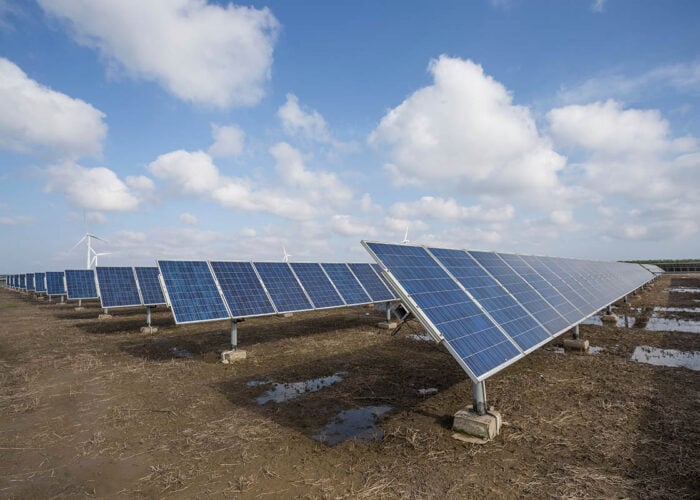
The Solar Energy Industries Association (SEIA) has appointed US Department of Energy (DOE) veteran Jeremiah Miller as its new director of storage markets and policy.
Miller, who joins from the DOE’s Solar Energy Technologies Office (SETO), where he managed US$60 million in research and development funding and served as technology manager for the Systems Integration team, will “enhance the organisation’s policy advocacy and programmatic support for competitive energy storage,” according to a SEIA media release.
Unlock unlimited access for 12 whole months of distinctive global analysis
Photovoltaics International is now included.
- Regular insight and analysis of the industry’s biggest developments
- In-depth interviews with the industry’s leading figures
- Unlimited digital access to the PV Tech Power journal catalogue
- Unlimited digital access to the Photovoltaics International journal catalogue
- Access to more than 1,000 technical papers
- Discounts on Solar Media’s portfolio of events, in-person and virtual
In May, SEIA launched the Storage Advocacy Network, a separate brand of the trade body responsible for pushing for federal and state-level policies that support the energy storage sector’s development, as well as sector-specific research and events.
At the time, SEIA CEO Abigail Ross Hopper said in a statement that solar and storage are “inextricably linked” technologies that, if combined, can further accelerate the US’ net-zero targets.
And in July, SEIA called on Congress to fund a new programme from the Biden Administration that aimed to reduce the cost of grid-scale, long-duration energy storage by 90% by 2030.
Commenting on the appointment of Miller, Ross Hopper said SEIA was “eager to take our energy storage advocacy to the next level” and that “energy storage is a key part of our Solar+ Decade vision, but we need to deploy storage 45 times faster to reach 30% solar generation by 2030.”
Miller, a registered engineer who has experience in grid modernisation planning and climate change mitigation, said: “Energy storage costs have dropped 50% over the last five years, and this is changing how we plan, design and operate energy systems”, adding that he was looking forward to working with SEIA members to expand energy storage use.
SEIA said it has secured a “number of recent storage wins” for the sector, including new interconnection rules for solar-plus-storage installations in Colorado, and a 60% wires charge reduction for standalone energy storage in Southern California Edison territory.
The trade body is advocating for a 30% investment tax credit for standalone energy storage as part of the infrastructure legislation currently being negotiated by Congress.







